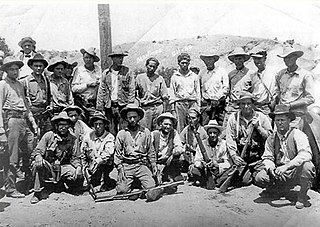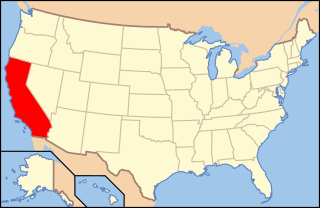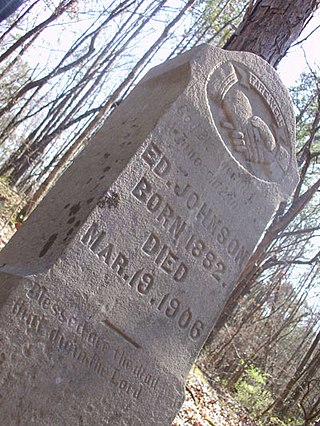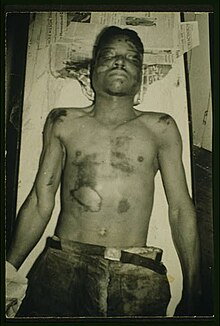
The United States Department of Justice (DOJ), also known as the Justice Department, is a federal executive department of the United States government tasked with the enforcement of federal law and administration of justice in the United States. It is equivalent to the justice or interior ministries of other countries. The department is headed by the U.S. attorney general, who reports directly to the president of the United States and is a member of the president's Cabinet. The current attorney general is Merrick Garland, who has served since March 2021.

The United States Marshals Service (USMS) is a federal law enforcement agency in the United States. The Marshals Service serves as the enforcement and security arm of the U.S. federal judiciary, although it is an agency of the U.S. Department of Justice and operates under the direction of the U.S. Attorney General. It is the oldest U.S. federal law enforcement agency, created by the Judiciary Act of 1789 during the presidency of George Washington as the "Office of the United States Marshal". The USMS as it stands today was established in 1969 to provide guidance and assistance to U.S. Marshals throughout the federal judicial districts.

The Civil Rights Act of 1875, sometimes called the Enforcement Act or the Force Act, was a United States federal law enacted during the Reconstruction era in response to civil rights violations against African Americans. The bill was passed by the 43rd United States Congress and signed into law by United States President Ulysses S. Grant on March 1, 1875. The act was designed to "protect all citizens in their civil and legal rights", providing for equal treatment in public accommodations and public transportation and prohibiting exclusion from jury service. It was originally drafted by Senator Charles Sumner in 1870, but was not passed until shortly after Sumner's death in 1875. The law was not effectively enforced, partly because President Grant had favored different measures to help him suppress election-related violence against blacks and Republicans in the Southern United States.
Concealed carry, or carrying a concealed weapon (CCW), is the practice of carrying a weapon in public in a concealed manner, either on one's person or in close proximity. CCW is often practiced as a means of self-defense. Following the Supreme Court's NYSRPA v. Bruen (2022) decision, all states in the United States were required to allow for concealed carry of a handgun either permitlessly or with a permit, although the difficulty in obtaining a permit varies per jurisdiction.
Printz v. United States, 521 U.S. 898 (1997), was a United States Supreme Court case in which the Court held that certain interim provisions of the Brady Handgun Violence Prevention Act violated the Tenth Amendment to the United States Constitution.
United States v. Harris, 106 U.S. 629 (1883), or the Ku Klux Case, was a case in which the US Supreme Court held that it was unconstitutional for the federal government to penalize crimes such as assault and murder in most circumstances. The Court declared that only state governments have the power to penalize those crimes.
In the United States, the right to keep and bear arms is modulated by a variety of state and federal statutes. These laws generally regulate the manufacture, trade, possession, transfer, record keeping, transport, and destruction of firearms, ammunition, and firearms accessories. They are enforced by state, local and the federal agencies which include the Bureau of Alcohol, Tobacco, Firearms and Explosives (ATF).
District of Columbia v. Heller, 554 U.S. 570 (2008), is a landmark decision of the Supreme Court of the United States. It ruled that the Second Amendment to the U.S. Constitution protects an individual's right to keep and bear arms—unconnected with service in a militia—for traditionally lawful purposes such as self-defense within the home, and that the District of Columbia's handgun ban and requirement that lawfully owned rifles and shotguns be kept "unloaded and disassembled or bound by a trigger lock" violated this guarantee. It also stated that the right to bear arms is not unlimited and that certain restrictions on guns and gun ownership were permissible. It was the first Supreme Court case to decide whether the Second Amendment protects an individual right to keep and bear arms for self-defense or whether the right was only intended for state militias.
Conspiracy against rights is a federal offense in the United States of America under 18 U.S.C. § 241:
If two or more persons conspire to injure, oppress, threaten, or intimidate any person [...] in the free exercise or enjoyment of any right or privilege secured to him by the Constitution or laws of the United States, or because of his having so exercised the same;...
They shall be fined under this title or imprisoned not more than ten years, or both; and if death results from the acts committed in violation of this section or if such acts include kidnapping or an attempt to kidnap, aggravated sexual abuse or an attempt to commit aggravated sexual abuse, or an attempt to kill, they shall be fined under this title or imprisoned for any term of years or for life, or both, or may be sentenced to death.
United States v. Wheeler, 254 U.S. 281 (1920), was an 8-to-1 landmark decision of the US Supreme Court that held that the Constitution alone does not grant the federal government the power to prosecute kidnappers, even if moving abductees across state lines on federally-regulated railroads at the behest of local law enforcement officials, and only the states have the authority to punish a private citizen's unlawful violation of another's freedom of movement. The case was a landmark interpretation of the Privileges and Immunities Clause of the Constitution, and contains a classic legal statement of the right to travel which continues to undergird American jurisprudence.

The posse comitatus, frequently shortened to posse, is in common law a group of people mobilized by the conservator of peace – typically a reeve, sheriff, chief, or another special/regional designee like an officer of the peace potentially accompanied by or with the direction of a justice or ajudged parajudicial process given the imminence of actual damage – to suppress lawlessness, defend the people, or otherwise protect the place, property, and public welfare. The posse comitatus as an English jurisprudentially defined doctrine dates back to ninth-century England and the campaigns of Alfred the Great simultaneous thereafter with the officiation of sheriff nomination to keep the regnant peace. There must be a lawful reason for a posse, which can never be used for lawlessness.

Gun laws in California regulate the sale, possession, and use of firearms and ammunition in the state of California in the United States.

The California Department of Justice is a statewide Investigative Law Enforcement Agency and Legal Department of the California Executive Branch under the elected leadership of the California Attorney General (AG) which carries out complex criminal and civil investigations, prosecutions, and other legal services throughout the US State of California. The department is equivalent to the State Bureau of Investigation in other states.

On March 19, 1906, Ed Johnson, a young African American man, was murdered by a lynch mob in his home town of Chattanooga, Tennessee. He had been sentenced to death for the rape of Nevada Taylor, but Justice John Marshall Harlan of the United States Supreme Court had issued a stay of execution. To prevent delay or avoidance of execution, a mob broke into the jail where Johnson was held, and abducted and lynched him from the Walnut Street Bridge.
Shelley v. Kraemer, 334 U.S. 1 (1948), is a landmark United States Supreme Court case that held that racially restrictive housing covenants cannot legally be enforced.

The Allegheny County Sheriff's Office is a law enforcement agency that serves Allegheny County, Pennsylvania, and is the largest sheriff's office in the state. The ACSO serves as a local arm of the Pennsylvania Unified Judicial System in a number of roles, including: court security, writ services, sales, prisoner transportation, issuing of firearm licenses and execution of warrants. A primary responsibility of the office is fugitive apprehension. The Sheriff's Office also assists local law enforcement agencies with emergency and incident response on an as-needed basis, most notably through the use of trained police canines.

Gun laws in Pennsylvania regulate the sale, possession, and use of firearms and ammunition in the Commonwealth of Pennsylvania in the United States.

Moore v. Madigan is the common name for a pair of cases decided in 2013 by the U.S. Court of Appeals, 7th Circuit, regarding the constitutionality of the State of Illinois' no-issue legislation and policy regarding the carry of concealed weapons. The plaintiffs, Michael Moore, Mary Shepard and the Second Amendment Foundation, sought an injunction against Illinois attorney general Lisa Madigan, Illinois Governor Patrick Quinn, and other named defendants, barring them from enforcing two key provisions of the Illinois Statutes prohibiting public possession of a firearm or other weapon.
New York State Rifle & Pistol Association, Inc. v. Bruen, 597 U.S. 1 (2022), abbreviated NYSRPA v. Bruen and also known as NYSRPA II or Bruen to distinguish it from the 2020 case, is a landmark decision of the United States Supreme Court related to the Second Amendment to the United States Constitution. The case concerned the constitutionality of the 1911 Sullivan Act, a New York State law requiring applicants for a pistol concealed carry license to show "proper cause", or a special need distinguishable from that of the general public, in their application.

Jeffery Paul Hopkins is an American lawyer who is a United States district judge of the United States District Court for the Southern District of Ohio. He previously served as a United States bankruptcy judge of the same court.












